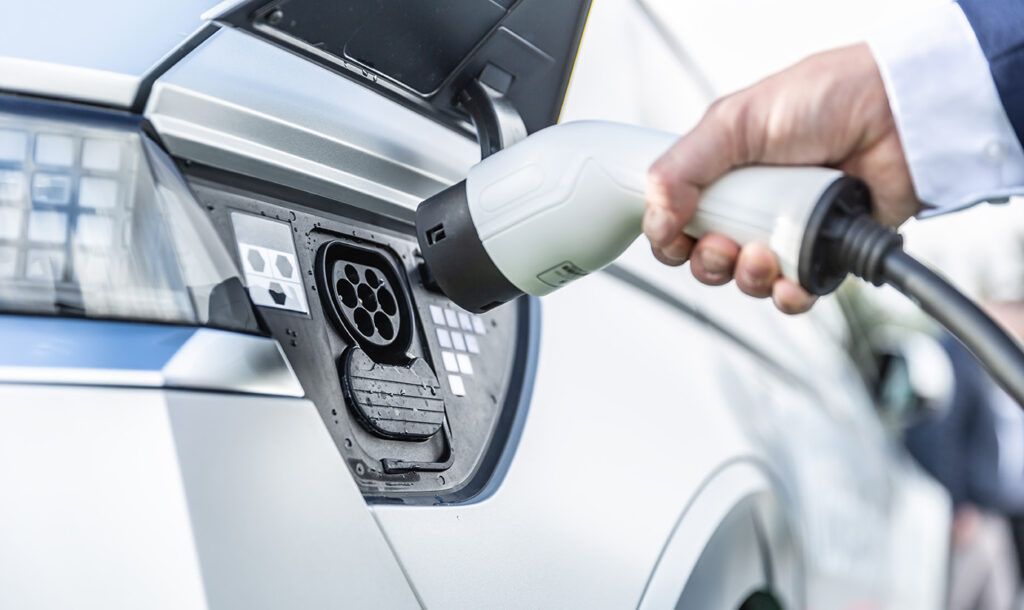Staying on top of HMRC’s Advisory Fuel Rates (AFRs) is essential for fleet managers. With new rates coming into effect from 1 March 2025, it’s time to review your fleet fuel costs, reimbursement policies, and how your drivers can maximise fuel efficiency.
Let’s break down what’s changing, how it affects your fleet, and how Fleet Service GB’s tools and training can help you manage fuel costs effectively.
What Are HMRC Advisory Fuel Rates?
AFRs are set by HMRC to determine the cost per mile for company cars. They apply when:
- Employers reimburse drivers for business mileage.
- Employees repay fuel costs for private use of a company car.
Using these rates correctly means you avoid tax liabilities, keep fleet costs under control, and ensure compliance with HMRC regulations.
What’s Changing in the New Advisory Fuel Rates?
The latest AFRs, effective from 1 March 2025, include minor increases for diesel and petrol vehicles, while LPG and electric vehicle (EV) rates remain unchanged. Here’s a quick breakdown:
New AFRs from March 2025
| Fuel Type | Up to 1,400cc | 1,401-2,000cc | Over 2,000cc |
| Petrol | 12ppm | 15ppm | 23ppm |
| Diesel | 12ppm | 13ppm | 17ppm |
| LPG | 11ppm | 13ppm | 21ppm |
| Electric | 7ppm (unchanged) | – | – |
Key Changes:
- Petrol cars (1,401-2,000cc) – Increase from 14ppm to 15ppm
- Diesel cars (up to 1,600cc) – Increase from 11ppm to 12ppm
- Electric AFR remains at 7ppm
Hybrid vehicles are treated as petrol or diesel, depending on fuel type.
How Will These Changes Impact Your Fleet?
If you manage a company car fleet, these updates could mean slight increases in fuel reimbursement costs. While the changes aren’t huge, even a 1ppm increase can add up across a large fleet.
What Should Fleet Managers Do?
- Review reimbursement policies – Ensure your mileage rates align with HMRC’s latest AFRs.
- Monitor fleet fuel efficiency – Track fuel usage to identify areas for cost savings.
- Train drivers for fuel-efficient driving – Small driving habit changes can significantly cut fuel costs.
- Encourage electric vehicle adoption – EVs still have the lowest AFR at 7ppm.
How Fleet Service GB Can Help
Fleet Service GB offers expert tools and training to help fleet managers reduce costs and improve efficiency.
FuelSave Training – Cut Fuel Costs
Fleet Service GB’s FuelSave training teaches drivers practical ways to save fuel, including:
- Smoother acceleration and braking
- Using gears efficiently
- Reducing unnecessary idling
By training drivers, fleets can cut fuel consumption, which helps offset rising costs.
FSGB Driver Management Programme – Smarter Fleet Control
Managing a fleet goes beyond just fuel costs. The FSGB Driver Management Programme gives fleet managers real-time insights into:
- Driver behaviour (speeding, harsh braking, idling)
- Fuel efficiency reports
- Maintenance alerts
With this data, fleets can improve performance, reduce risk, and save money.
FAQs About HMRC Advisory Fuel Rates
What are HMRC Advisory Fuel Rates used for?
AFRs are used for reimbursing employees for business mileage and ensuring correct repayment of fuel costs for private use of a company car.
How often do HMRC Advisory Fuel Rates change?
Rates are reviewed quarterly (March, June, September, December) based on fuel price data and efficiency calculations.
Can companies use their own mileage rates?
Yes, but if rates are higher than HMRC’s AFRs, employers must prove the costs are justified, or the excess is taxable.
How do hybrid cars fit into AFRs?
Hybrid cars follow the petrol or diesel AFRs, depending on their primary fuel type.
How do I ensure compliance with HMRC AFRs?
- Regularly check updated AFRs.
- Record business mileage accurately.
- Use Fleet Service GB’s tracking and training solutions to improve efficiency and compliance.
FAQs About Fleet Service GB
What does Fleet Service GB do?
Fleet Service GB provides fleet management solutions, including driver training, vehicle tracking, and maintenance support.
How can FSGB help reduce fleet fuel costs?
Through FuelSave training, telematics, and the Driver Management Programme, FSGB helps fleets cut fuel use and improve efficiency.
Does FSGB offer electric vehicle fleet support?
Yes! FSGB helps businesses transition to EV fleets, offering charge point solutions, cost analysis, and driver training.
Can Fleet Service GB help with compliance?
Absolutely. FSGB helps fleets stay compliant with HMRC AFRs, duty of care obligations, and vehicle safety regulations.
How do I sign up for FSGB services?
Visit Fleet Service GB’s website or contact their team for a free consultation.
Final Thoughts
The new HMRC Advisory Fuel Rates might seem like small changes, but they can impact fleet costs over time. By reviewing your policies, training drivers, and using fleet management tools, you can stay compliant, cut costs, and improve efficiency.
Fleet Service GB’s FuelSave training and Driver Management Programme are game-changers for fleet managers looking to stay ahead. Ready to take control of your fleet’s fuel costs? Get in touch with FSGB today!



